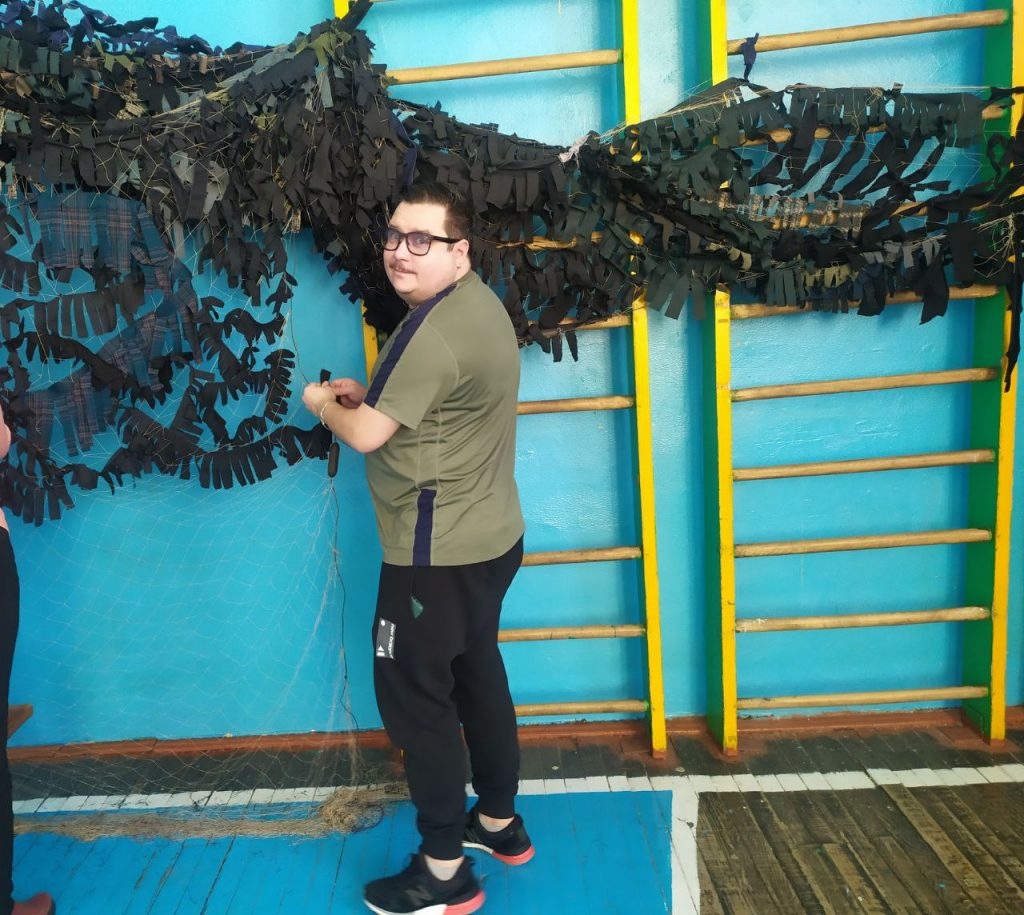Ukrainian designers swap fashion week collections for army apparel

While international designers may be busy doing shows at Milan and Paris fashion weeks, Ukrainian designers are making clothes for war.
After Russia launched its full-scale invasion of Ukraine on Feb. 24, Ukrainian designers have decided to use their sewing skills to support the Ukrainian army. Instead of fashionable shoes and stylish outerwear, they are now making camouflage nets, combat boots, and even armored vests.
The Kyiv Independent spoke to Ukrainian designers helping the country amid war.
From menswear to camouflage
Ukrainian designer Serge Smolin, whose brand Idol makes designer suits, used to help men stand out. Now he’s making sure that men blend in, providing the Ukrainian army with camouflage nets.
After escaping Kyiv, which has been targeted by Russian artillery and missiles, Smolin arrived at his parents' home in western Ukraine.
The designer immediately went to the nearest military checkpoint to see what was needed. They needed someone to weave camouflage nets. Smolin’s newly formed team, which included his family and artist Serge Payet, found rolls of cloth at home and got to work.

“We joke that we are making ‘macrame’ for our new collection,” Smolin told the Kyiv Independent.
They are using the local school’s large gym for weaving. The camouflage nets were later routed to hotspots around Ukraine, including Kyiv’s suburbs.
From high heels to combat boots
The popular shoe brand Kachorovska is known for its comfortable, stylish, and affordable shoes.
The brand prides itself in keeping its designs beautiful without sacrificing comfort, Maria Slenzak, Kachorovska’s brand manager, told the Kyiv Independent.
But since the start of Russia’s full-scale invasion, the brand has repurposed its production from trendy footwear to combat boots.
Kachorovska is now collaborating with three different factories, each providing soles, leather, and employees for the production of boots for the Armed Forces and Territorial Defense.

The first 500 pairs were sewn by Kachorovska’s team on their own funds. Later, they turned to the public for support and have started accepting donations that cover supplies.
The brand doesn’t have access to the tactical cloth, so they have been using leather instead.
“All pairs were sewn under constant sirens with the threat of airstrikes, with the bombing of cities where the combat boots are made,” Slenzak says. “It takes courage for our team to work in such conditions.”
People can donate to Kachorovska’s charity fund used to purchase supplies on their Instagram @kachorovska_atelier. The brand turns off the donation link when they gather enough funds needed to sew the next batch.
The production and delivery of the boots are done under extreme circumstances and stress, but the feedback from soldiers has kept the Kachorovska team motivated.
“They are very satisfied,” Slenzak says.
From outerwear and couture to military vests
Several fashion brands, such as Nebesite and Frolov, have turned to making bulletproof vests in order to support the Armed Forces and Territorial Defense.
Nebesite, previously an outerwear brand, was preparing to celebrate its fourth birthday with its new spring collection. Within 48 hours of the first attacks, the team was already looking and contacting experts on how to use their skills to help the military.
The brand found a manufacturer of metal plates for bulletproof vests and was able to partner up with them, designing a simplified version of the vests.
The brand was able to provide the first 250 vests free of charge.

“At our own expense, the brand's budget, which we had prepared for the spring and the next winter collection,” Tanya Mogila, Nebesite’s designer, told the Kyiv Independent. The body armor was distributed to people in Irpin, Kyiv and at the Zhytomyr highway checkpoint.
Prices of materials have gone up since the start of the war, with the cost of making a vest jumping to around $190. The money is spent on the fabric, metal plates, and salaries for the seamstresses who are making the vests under shelling.
Meanwhile, a popular brand Frolov is using its platform to fundraise for military vests.
Their aim is to find money to buy the steel needed for the vests in Europe, as it has become increasingly difficult to source it in Ukraine.
For that, Frolov’s brand has already raised over 20,000 euros abroad. The brand has donated several of their sewing machines to volunteers, while some of Frolov’s employees stayed to sew the vests.
The vests made so far are already in the possession of the Ukrainian army.
People can support the productions through the donation links on Nebesite Instagram @nebesite.clothes and Frolov’s campaign at @frolovheart.









